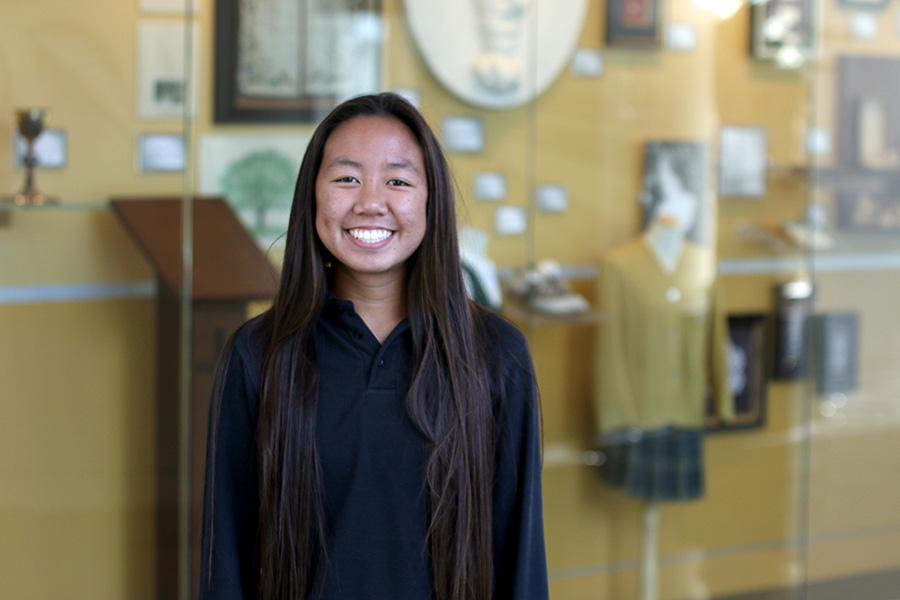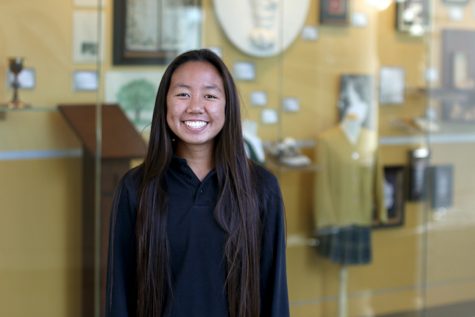K-pop isn’t just “Gangnam Style”
Korean pop boyband BTS represents what K-pop actually is. The band defies the K-pop stereotype that K-pop boybands are just bright hair and heavy makeup.
December 12, 2017
“Making their U.S. TV debut,” The Chainsmokers’ Alex Pall paused at the 2017 AMAs, “make some noise, for BTS!” From my 22 by 16 inch, blocky, decaying TV, I shriek as the seven boys I know and love finally take centerstage. After four minutes of blood, sweat and tears and shrieking a language I can’t even speak at the top of my lungs, they exit in ear-splitting cheers.
I think it’s safe to say I’m a tad obsessed with the K-pop band BTS, short for Bangtan Sonyeondan. It’s comprised of South Korean vocalists and rappers from ages 20-24. I think for most people, the first song that comes to mind when someone says K-pop is Gangnam Style, and although this is the general idea behind Korean pop, I believe there is more to K-pop than the numerous misconceptions it has.
While surfing YouTube, you might have seen clips here and there of goth, black-clad boys wearing dark eyeliner, dancing so synchronized that it seems impossible and singing an unknown language that sounds like gibberish. Yes. This is the K-pop boy group stereotype that so many know, but BTS is so much more than the flawless makeup and bright hair.
They release unbelievably catchy hip hop and contemporary R&B music and write their own heart-breaking lyrics. Jungkook, their youngest member has such a smooth, crisp voice that sends a jolt of shivers down my spine everytime he sings, and their bandleader, RapMonster, has even released his own rap album that became one of SPIN’s 50 Best Hip-Hop Album of 2015. To top it all off, they dance so harmoniously that they have been called the “Kings of Synchronization” by their fandom.
Their heavy eyeliner chased me away at first, but I found they applied it to fully portray their dark themes. As a Vietnamese born in America, I understand the difficulty of differentiating between BTS members. Their faces are so alike (us Asians, I know), but after giving BTS a chance, I saw their talent through their passionate songs and impeccable dances, and I’m proud to say I can identify them all: V, Jungkook, Jimin, Jin, J-Hope, RapMonster and Suga.
As international artists, K-pop artists also face language barriers. They not only have to speak Korean, they must also know English, Japanese, Chinese, Spanish and more. As they travel on tour to other countries, occasionally, they are laughed at for their choppy English. Refusing to be defeated, one of their members learned English from Friends. It may take more time than usual for American interviewers, like Ellen, to wait for RapMonster to translate, but BTS will do anything to overcome barriers for their passionate fandom, ARMYs(Adorable Representative M.C. for Youth) like dressing up as lady bugs to show their aegyo(cuteness).
Although BTS isn’t merely a product of their entertainment company, I regret to admit that yes, there are some groups out there that simply are in the business for the money and fame. They got recruited for merely having a pretty face. There will always be weeds in the garden. They tarnish K-pop, but BTS will outshine these pathetic excuses that call their music K-pop.
There will always be some sticklers who hold K-pop back from growing into an international sensation, but I believe BTS will create a new image for K-pop. As they begin to make their dent in America’s music such as performing at the 2017 AMAs, I hope others will give K-pop a chance, seeing through the foreign words. BTS is more than the dark makeup and clothes. They are true artists.




